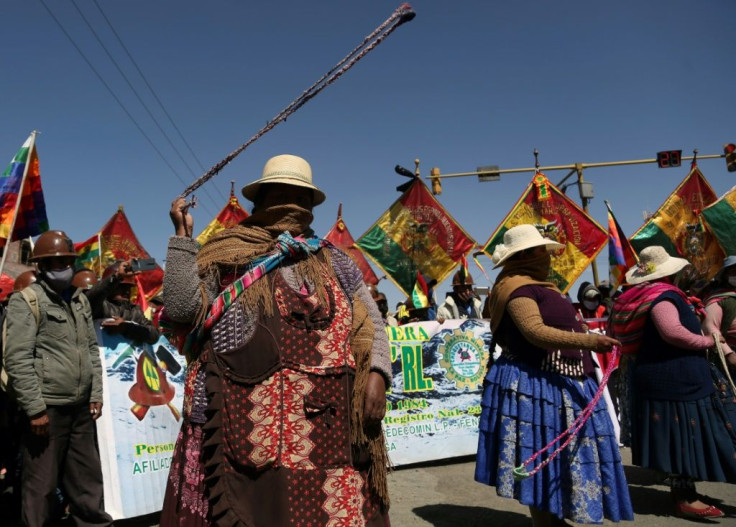Protests Persist Despite Bolivia's New Election Law
Supporters of exiled former Bolivian president Evo Morales demonstrated Thursday though in smaller numbers following approval of a new law preventing further postponement of the country's general election, the government said.
Demonstrators -- mostly indigenous people and peasants -- had set up 142 roadblocks across Bolivia after the vote was delayed twice. Officials reported some of the blockades were coming down.
Originally due to take place in May, the election was pushed back to September and then October 18 due to the coronavirus pandemic.
Protesters, however, suspected the government was delaying the elections to prevent Luis Arce, who represents Morales's Movement for Socialism (MAS) party, from becoming president.
The new measure, mandating that the election not be held later than October 18, was passed by the Senate late Wednesday and ratified by the Chamber of Deputies on Thursday.
Bolivia's Supreme Electoral Court also unanimously approved the resolution, confirming "Sunday, October 18, 2020 as the final, immovable and unpostponable date for election day," said the body's president Salvador Romero.

Javier Issa, internal affairs deputy minister said there was already "a reduction in roadblocks since the law was passed."
Authorities said the roadblocks severely limited the ability of trucks carrying oxygen to reach hospitals where coronavirus patients were in desperate need of treatment.
Tensions had run high as the United Nations, European Union and Catholic Church called for dialogue and Interior Minister Arturo Murillo warned the country was heading for "a civil war."
Last week, Murillo threatened to deploy the military to clear the roadblocks.

Both chambers of parliament are controlled by Morales's MAS party, whose candidate Arce has consistently led the polls since his nomination by Morales in January.
Conservative interim President Jeanine Anez is polling in third place behind centrist ex-president Carlos Mesa.
On Thursday, Issa said there were fewer blockades in the northern Pando and Beni departments, and "almost none" in Santa Cruz in the east.
However, he said they remain unmoved in the administrative center of La Paz and Oruro in the west.
In El Alto, a satellite town on the outskirts of La Paz and hub of support for Morales, demonstrators maintained their blockades and demanded that Anez resign.
Carlos Huarachi, the leader of the country's main trade union federation Central Obrera Boliviana, said the law was "a betrayal" since it did little to solve the country's other problems such as its ongoing economic crisis.
Aymara indigenous leader Felipe Quispe said that his supporters had no intention of suspending their protest movement, and demanded Anez's resignation.
The executive as well as top military and police chiefs have accused protesters of "terrorism."
And the government accuses Morales and Arce of being behind the roadblocks.
Experts believe that Bolivia has not yet reached the peak of its coronavirus outbreak, which is expected in early September.
Bolivia has registered more than 95,000 coronavirus cases and 3,800 deaths.
The Andean country has been in political crisis since the October 2019 election won by Morales, who subsequently resigned and fled into exile after an Organization of American States audit found evidence of fraud.




















